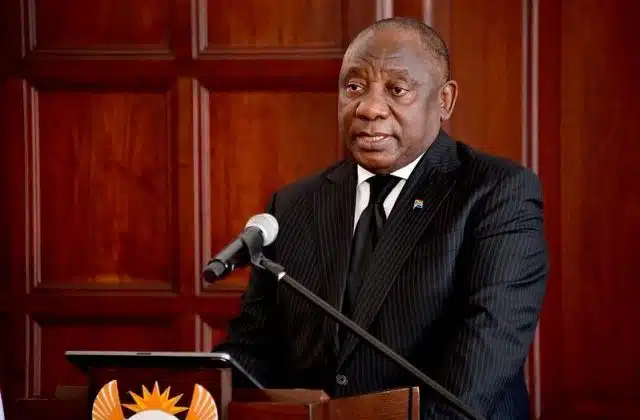
Land expropriation bill moves ahead – as government tries to calm fears over land grabs
The National Assembly of South Africa (NA) passed the controversial Expropriation Bill late Wednesday night, 28 September 2022, taking it one step closer to becoming enacted in law.
The bill – which was rejected last year – currently allows the expropriation of land only for public purposes and in the interest of the public, as stipulated in Section 25 of the Constitution.
While Section 25(3) requires the amount of compensation for land to be “just and equitable” – reflecting an equitable balance between the public interest and the interests of those affected – the bill makes it possible for expropriation of land with “nil compensation” under specific circumstances.
These circumstances include abandoned land, state land, or land held for speculative purposes.
The NA noted that the purpose of the expropriation bill is to repeal the existing Expropriation Act to provide a common framework in line with the constitution to guide the processes and procedures for the expropriation of property by the organs of the state.
The assembly also said it would seek to provide considerations where nil compensation may be appropriate in the public interest.
It further added in a statement that the portfolio committee on public works and infrastructure had engaged with the public, and organised citizen groups, political parties and traditional leaders for their views on the bill.
No ‘arbitrary’ land seizures
Public Works and Infrastructure minister Patricia de Lille has tried to assure South Africans that the government has no intention of using the bill to “arbitrarily” seize land from private owners.
She said that talk of land grabs and seizures of private property amounted to fear-mongering.
“I am certain we can agree [arbitrary expropriation] is not the kind of pain and injustice that democratically elected representatives will subject South Africans to again. It is our responsibility to correct the historic injustice of land ownership patterns in South Africa.
“It is extremely dangerous to suggest that government will arbitrarily take people’s property such as their homes. [Land] is an emotive issue. Across the country, there is still great pain being felt by people of colour who were stripped of their homes and denied the right to own property under the Apartheid regime.
“We can debate our points, but what is wrong is to instil fear-mongering and distort the facts in a debate about land, and this is done all too often. Many times, those against the Expropriation Bill have been people who were never subjected to laws that stripped people of their property or rights to own property,” de Lille said.
Political parties such as the EFF, The Democratic Alliance, IFP, Freedom Front Plus and African Christian Democratic Party have objected to the bill in writing.
The DA proposed amendments to the bill, including limiting expropriation to specific instances only for state land, but these were defeated in a separate vote.
The EFF stated that the bill is still too limited in scope and has long been a proponent of nationalising all land under the state.
The Freedom Front Plus, meanwhile, argued that the bill in its entirety would harm South Africa’s already troubled economy – regardless of its purpose and promises of intended use by the government.
The bill will now go to the National Council of Provinces for commencement, after which it will head to the desk of the president to be signed into law.
With SANews
Read: Government scrambles to stop South Africa’s next big crisis



